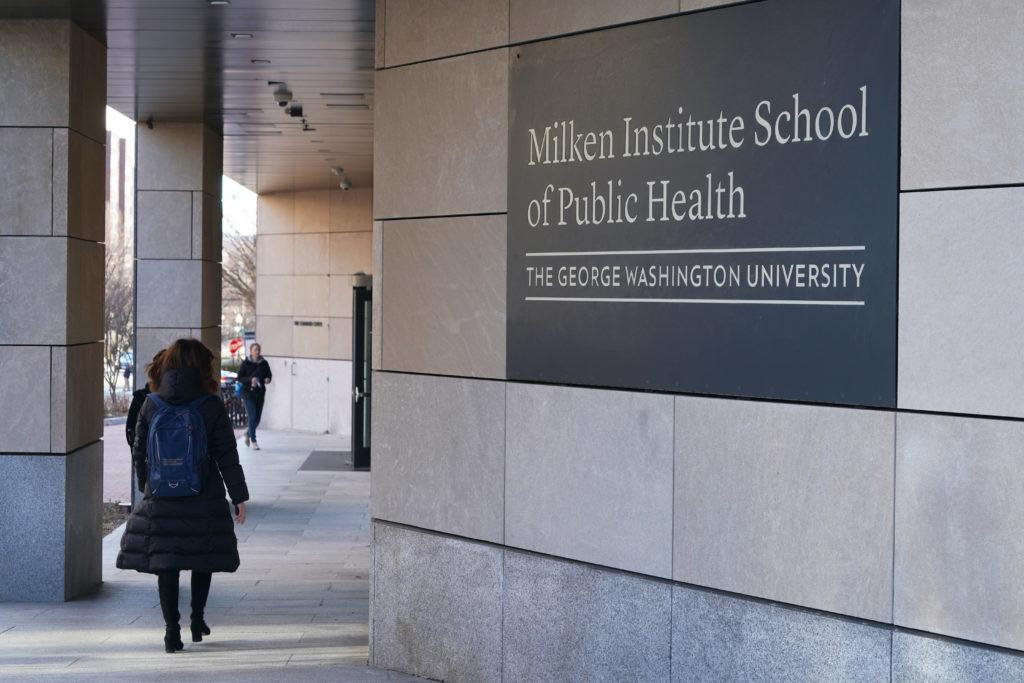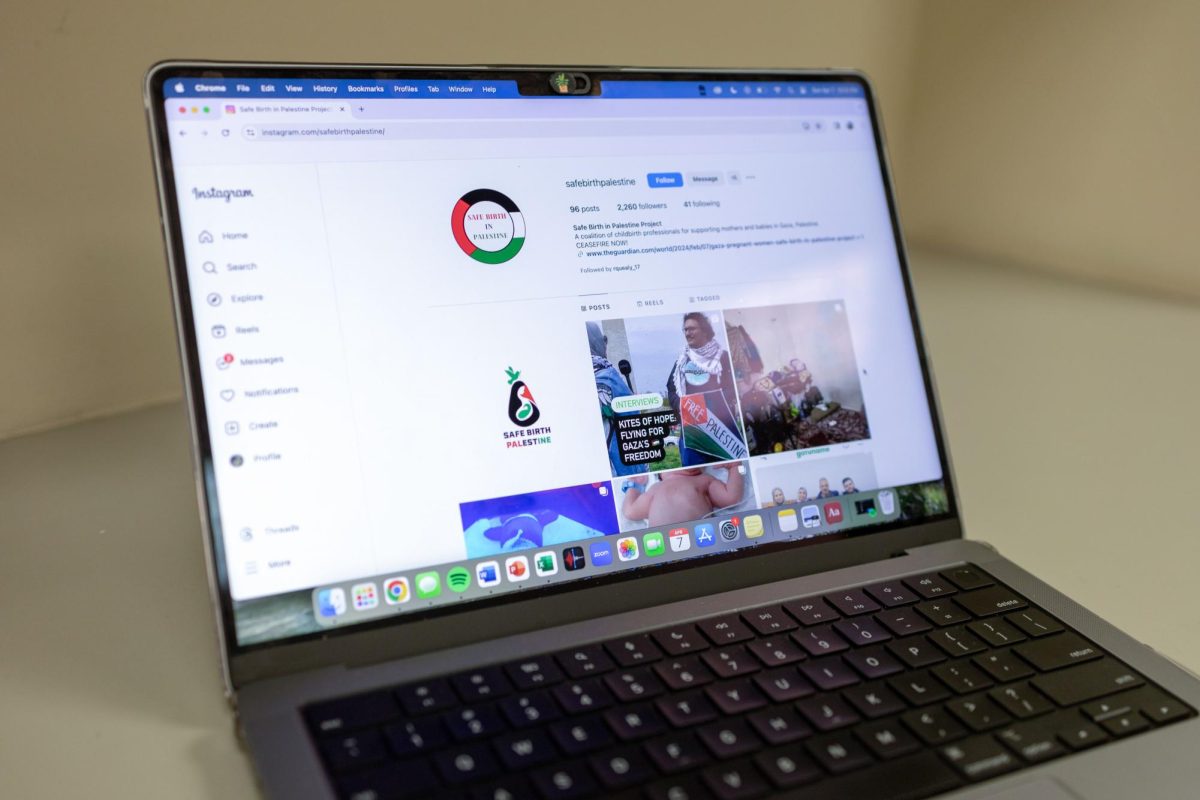A Milken Institute School of Public Health study is raising awareness about how more equitable education about health and sanitation can promote the use of water filters and clean water consumption among low-income Latino communities.
The Water Up!@Home study distributed low-cost tap water filtering pitchers to 92 low-income families from the majority-Latino neighborhood of Langley Park, Maryland in 2019, and an experimental group of half the families received educational information about tap water and the health consequences of sugar-sweetened beverages. The study shows greater access to clean water can decrease the consumption of sugary drinks, which is more common among racial minorities than non-Hispanic white people.
Uriyoán Colón-Ramos – an associate professor of exercise and nutritional sciences in Milken and the study’s lead researcher – said families in the intervention group consumed fewer sugary drinks, like soda and fruit juice, than families in the control group. Colón-Ramos said the results were “surprising” because no scientist before had discovered a connection between water insecurity and sugary drink consumption in an intervention study with a control and intervention group.
She said she received a grant from the Centers of Disease Control and Prevention in the mid-2010s to conduct a community-based study on nutrition in Langley Park, Maryland, but she didn’t know what the study would focus on until families told her they didn’t drink much tap water. She said her team conducted interviews with participants to assess their tap water and sugary drink consumption and determine if the filters and educational interventions decreased their sugary drink consumption.
“One of the things that came up during the interviews was that none of the families drank tap water,” Colón-Ramos said.
She said many citizens of Langley Park did not trust the tap water in their homes because they think the water’s cleanliness is under-regulated. Colón-Ramos said the interviews with the participants concluded that distrust in tap water was one of the main causes for sugary drink consumption in Langley Park.
Water in Maryland is becoming increasingly unaffordable, and impacts – like shut-offs – tend to target low-income communities and those of color, according to a report that the Maryland Advisory Committee released in July 2022.
“We need to start thinking about if we’re telling people not to drink sugary drinks, then we need to make sure that there is an alternative or else we’re going to create an even larger disparity,” Colón-Ramos said.
Minority groups, like those in Langley Park, spend 16 percent more on bottled water than non-Hispanic whites do instead of filtering their tap water due to their distrust in the tap water, according to the Milken study.
Claudia Santillan-Vasquez, a research assistant for the study, said her role was to interview the participants about their thoughts on the study and how the water filter affected their daily lives. She said participants in the intervention group said they started reading food item labels in grocery stores after partaking in the study and increased their water consumption with the addition of a water filter.
Santillan-Vasquez said the families in the study who received educational interventions about clean water spent less money on bottled drinks and started to make Latin American-based drinks like frescos at home to eliminate their consumption of harmful preservatives outlined in the education.
The study found the difference in sugary drink consumption between the control and intervention groups was not statistically significant, but families who received the educational intervention decreased their fruit juice consumption more than the families who did not receive the intervention.
“Our target population was Latino communities, migrant Latino communities, but I hope that it may have an even wider impact for migrant communities in general or communities who live with less access to water, healthy food choices,” Santillan-Vasquez said.
Experts in public health and pediatrics said access to clean water reduces the risk of negative health impacts like obesity, metabolic syndrome and insulin resistance, and widespread awareness about clean water can help promote public health equity across the country.
Jeffrey Griffiths, a professor of public health and community medicine at Tufts University, said the “aesthetic” of tap water, like taste, odor and color, impacts people’s perception of its quality and makes them less likely to consume their tap water.
Griffiths said recent water access studies have shown increased violations of the Safe Drinking Water Act, which Congress passed in 1974 to protect drinking water, in underserved communities like poor areas, rural communities and indigenous communities.
“We are at a place right now where there are unexpected things that are challenges to the water supply,” Griffiths said. “So for example, we’re all familiar with, say, the lead poisoning stuff with Flint.”
Water pipes corroded and contaminated the water supply with lead in Flint, Michigan in 2014 after city officials changed the city’s water supply from Lake Huron to the Flint River in April 2014. Sixty-six percent of homeowners in Flint said they suffered from worsened physical health due to the contaminated water.
Anisha Patel, an associate professor of pediatrics at Stanford University, said providing water filters to low-income Latino families can change their perception of tap water from unsafe to clean. She said getting families to switch from bottled beverages to a filter also decreases costs for the family and the environment.
“I would think if you’re able to use a filter to get families to consume water instead of sugary beverages, it could be a huge one in the long term in terms of health consequences and also the economical and climate consequences of switching over from the bottles to a filter,” Patel said.
Patel said low-income communities with many immigrants like Langley Park don’t trust tap water because they might have moved from a country where tap water wasn’t safe to drink and assume the same for tap water in the U.S. She said water studies, like the one conducted by Colón-Ramos, illuminate clean tap water access issues around the country.
“Here in the U.S. at this day of age, people should be able to really turn on the tap and drink directly from the tap, but that’s not the case for those families,” Patel said.







